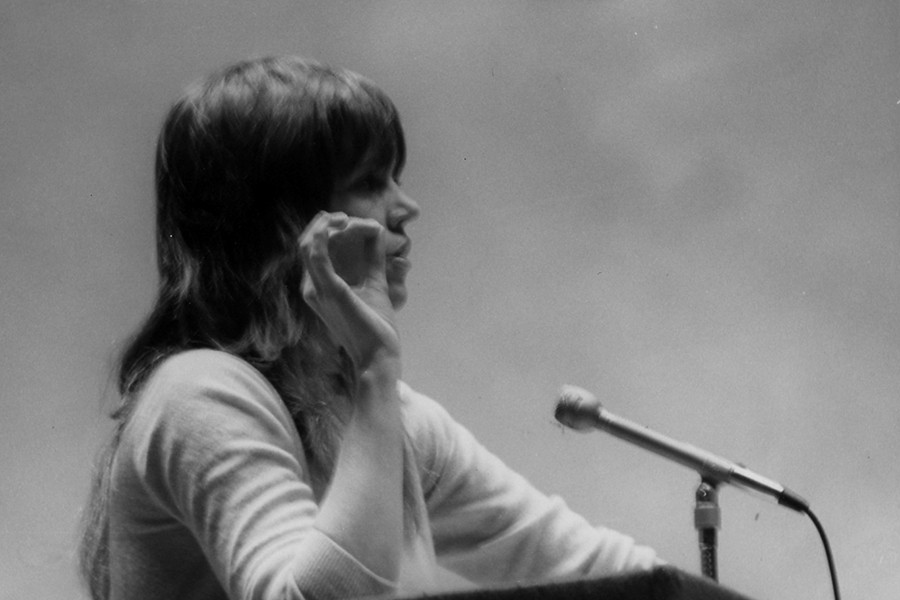Co-Education at Hopkins
- Sheridan Libraries
- Guides
- Co-Education at Hopkins
- Social Reform
To bridge the gap between the students and the administration, the University appointed five women to act as liaisons. According to Kathy Campbell, a student in 1971, the female undergraduates were difficult to organize, attributing the issue to the liaison program that hindered further activism on campus. While she attempted to form an undergraduate women’s activist group, Campbell formed a discussion group that consisted primarily of graduate students’ wives.
This viewpoint rather contradicts the attempts from the early undergraduate women at Hopkins, who helped establish the Women’s Liberation group that targeted sexism on campus. In 1972, the organization was reestablished as the Martha Carey Thomas Women’s Center, which advocated for the concerns of Hopkins women and broadened a unique understanding of women within the community. The Center hosted seminars on rape prevention, invited notable feminists, and sponsored the House of Ruth, a volunteer program supporting battered women. In 1974, the group organized “Next Step: A Festival for Women,” in which the University’s first female undergraduates invited prominent female figures like Jane Fonda, Anne Sexton, and Shirley Chisholm to speak.

Jane Fonda speaking at “Next Step: A Festival for Women,” hosted by Martha Carey Thomas Women’s Center, 1974.
Courtesy of Mindy Farber (A&S '74)
Outside of the Center, despite their small numbers, women at Hopkins became increasingly involved in the campus community, demonstrating how student life gradually improved for the undergraduates. In 1972, for example, women embarked on important leadership roles. Every female undergraduate who ran for student government elections won, filling the roles of the Student Council vice-president, social committee chairman, class representative, and Class of 1972 secretary. Other women embarked on being Black Student Union Newsletter editor, Boosters Club vice-president, and Hopkins Fair cochairman. Also, Hopkins had six female cheerleaders last year and formed seven female varsity teams, such as field hockey and lacrosse.

Hopkins women's basketball team during a game against Western Maryland College, undated.
Sheridan Libraries Special Collections
As Mindy Farber (A&S ’74) reflects, “We did a lot to get things changed.” The Class of 1974 itself contributed to the University’s growth: they helped create a women’s health clinic, a women’s history class, and a women’s soccer team. In the 1974 Commencement speech, jointly written by the first full graduating class of women, the Class of 1974 noted, “Attitudes are slowly changing as men become accustomed to working with women instead of merely socializing with them.”